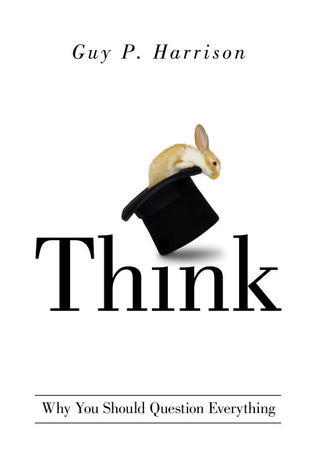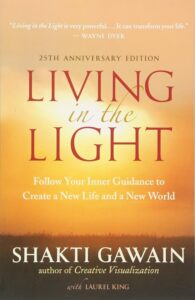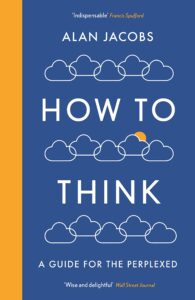Summary
🧠 The Brain: A Brilliant Trickster
One of the book’s central revelations is that your own brain—yes, your most trusted ally—is also your biggest liability. It distorts memories, falls for illusions, and craves comforting stories over uncomfortable truths. You don’t see with your eyes—you see with your brain, and your brain often lies to you.
Harrison shares dozens of real-life examples showing how easily intelligent, kind people fall for false memories, pseudoscience, and irrational fears—not because they’re dumb, but because they don’t know how deceptive their minds can be.
👻 Ghosts, Gurus, and Garbage Claims
From UFO abductions and Bigfoot sightings to fake medicines, astrology, and doomsday prophecies—Harrison guides you through the world’s weirdest and most popular beliefs, breaking them down with logic, compassion, and clarity.
His golden rule?
“Extraordinary claims require extraordinary evidence.”
He never mocks believers, but instead encourages readers to love the person, question the belief.
🥦 Care and Feeding of Your Brain
Thinking clearly isn’t just about logic. Harrison shows how nutrition, sleep, physical activity, and mental habits all influence your ability to reason. A foggy, tired brain is easy prey for scammers and seductive lies.
So, the book becomes a practical guide—almost a “self-care manual for skeptics.” You learn how to tune up your mental engine, sharpen your critical thinking, and guard against manipulation.
🌌 The Universe Is Better Than Magic
Perhaps the most beautiful message of the book is this: Reality is thrilling. Harrison argues that we don’t need myths to feel awe. Real science—from the behavior of atoms to the hunt for alien life—is far more amazing than fiction.
“Why settle for fake mysteries when real ones are everywhere?”
✅ What You’ll Walk Away With
After reading Think, you’ll begin to:
- Instantly spot bad logic and fake claims
- Trust your curiosity, not your comfort zone
- Ask better questions, not just seek better answers
- Think with humility—and confidence
- Replace magical thinking with constructive wonder
🔑 The Big Promise
You have little to lose—but a universe to gain.
Skepticism won’t make life dull. It will make it safer, richer, and more meaningful.
So if you’re tired of being manipulated, misled, or mentally misused—and you’re ready to sharpen your mind like a sword—this book is your first step to mental freedom.
✅ Starting with Chapter 1: Standing Tall on a Fantasy-Prone Planet📖 Mini-Story Recap
Imagine living on a planet where you’re constantly being approached by people offering miracle pills, mind-reading claims, and stories of ghosts, aliens, and magical cures. Guy P. Harrison says: “Welcome to Earth.” This chapter opens with a humorous but eye-opening tour through how our world is filled with both well-meaning believers and malicious deceivers trying to hijack our brains.
But Harrison doesn’t shame you—he empowers you. He introduces you to the idea that skepticism isn’t cynicism or negativity; it’s a shield, a filter, and your best personal defense mechanism. He recounts how choosing to “think like a scientist” changed his life—saving him from con artists, wasting money, and falling for hoaxes.
🧠 Key Insight / Mindset Shift
“Skepticism is not arrogance. It’s self-defense.”
Being skeptical doesn’t mean being cold or unfeeling. It’s about being curious with caution. Harrison redefines skepticism not as rejecting everything—but as waiting for evidence before accepting anything.
✅ Exact Practical Steps Tim Gives (here: Harrison’s suggestions)
- Think like a scientist. Observe, question, test, and then decide.
- Treat all extraordinary claims with caution—no matter how appealing.
- Realize your brain is vulnerable. It’s not about intelligence—it’s about habits of thinking.
- Ask: “What’s the evidence?” not “Do I like how this sounds?”
- Never be afraid to say “I don’t know.” That’s the beginning of all real knowledge.
🔑 Pointers for Action
- 🛑 Pause before believing: Is there good evidence?
- 🧪 Test new ideas like experiments—don’t swallow them whole.
- 🧠 Learn to love uncertainty—it’s safer than false certainty.
- 🙅♂️ Don’t assume smart = skeptical. Practice it daily.
- 🧍Stand tall on “Planet Crazy”—be the thinker in the crowd of followers.
🧠 Chapter 2: Pay a Visit to the Strange Thing That Lives Inside Your Head
📖 Mini-Story Recap
Imagine this: you’re absolutely certain you remember where you parked your car. You walk to that spot, but—bam—it’s gone. Confused, frustrated, even questioning reality. This isn’t a rare glitch—it’s how the brain normally works.
Guy P. Harrison gives you a tour of your deceptive, biased, and forgetful brain. He tells stories of people swearing they saw something that never happened or believing memories that were accidentally invented. Spoiler alert: your brain isn’t a camera—it’s more like an imaginative storyteller that edits, fills gaps, and adds special effects.
The scariest part? You often don’t even know when it’s lying to you.
🧠 Key Insight / Mindset Shift
“Your brain is not your enemy—but it is a very convincing liar.”
You don’t perceive reality—you interpret it. You don’t remember events—you reconstruct them. This shift teaches you not to blindly trust what you think you saw or remember.
✅ Exact Instructions Harrison Gives (Practical Steps)
- ❓Question your own memory—even if it feels vivid.
- 👀 Remember: “Forget eyes—it’s the brain that sees.” Optical illusions and biases fool you more than you’d think.
- 🔎 Watch out for confirmation bias—the tendency to seek evidence that supports what you already believe.
- 🛡️ Protect yourself by accepting how easily your brain misfires.
🔑 Pointers for Action
- 📓 Don’t treat memories as facts. Double-check them.
- 🧩 When you hear “I know what I saw”—mentally flag it as potentially unreliable.
- 🤔 Constantly ask: “Could my brain be filling in the gaps?”
- 🧠 Educate yourself about cognitive biases like pattern-seeking and availability heuristic (e.g., overestimating shark attacks because of news).
- 🧘 Practice humility in your thinking—being wrong is human.
🌌 Chapter 3: A Thinker’s Guide to Unusual Claims and Weird Beliefs
📖 Mini-Story Recap
Guy P. Harrison takes us on a thrilling mental safari—from UFO abductions to miracle healers, Bigfoot to alternative medicine, and everything in between. You might chuckle at some, but here’s the twist—millions believe these things.
Why? Because these beliefs often come with compelling stories, emotional appeal, and sometimes even celebrity endorsements. But Harrison gently pulls back the curtain and shows how many of these are built on weak evidence, faulty logic, and wishful thinking.
He tells the tale of a supposed UFO crash in Roswell, New Mexico, and breaks down how a series of misunderstandings, cover-ups, and media hype turned into a decades-long conspiracy theory.
🧠 Key Insight / Mindset Shift
“Extraordinary claims require extraordinary evidence.”
The more unusual the claim, the stronger the evidence must be. Without it, belief becomes dangerous—not just silly. This chapter reframes your thinking: doubt is not disrespect—it’s responsibility.
✅ Exact Instructions Harrison Gives (Practical Steps)
- 🔬 Demand real evidence before believing in ghosts, miracles, or psychic readings.
- ❗ Don’t trust anecdotes—even if they’re emotional or popular.
- 💬 Ask these simple but powerful questions:
- “What’s the evidence?”
- “Has this been tested scientifically?”
- “Are there better, more natural explanations?”
- 🚫 Avoid arguments like: “But thousands believe it” or “It happened to my friend.”
🔑 Pointers for Action
- 🛑 Be wary of claims that say: “Scientists don’t want you to know…”
- 🧠 Replace “I believe it because it’s exciting” with “I’ll believe it when it earns my trust.”
- 💡 Study the science behind debunked topics—like cold reading used by psychics or how sleep paralysis explains alien abductions.
- 🔍 Follow the evidence, not emotions.
- 🤹 Always separate entertainment (like ghost shows) from reality.
🎯 Why it matters:
Being a good skeptic doesn’t mean killing the fun—it means you get to enjoy the show without falling for the illusion. Harrison urges us to stay open-minded—but not so open that our brains fall out.
🧠 Chapter 4: The Proper Care and Feeding of a Thinking Machine
📖 Mini-Story Recap
Picture this: your brain is like a high-performance supercomputer. But you’ve been running it on junk fuel, never updating the software, and leaving it exposed to mental malware like misinformation and superstition.
In this chapter, Guy P. Harrison urges us to stop taking our thinking machine for granted. He shares stories and research that show how neglecting your brain’s physical needs—like sleep, nutrition, and activity—can make you more vulnerable to lies, illusions, and irrational beliefs.
He doesn’t just talk theory—he reveals how a tired, malnourished, or inactive brain is easy prey for scammers, pseudoscience, and toxic worldviews.
🧠 Key Insight / Mindset Shift
“A well-fed brain is your best defense against nonsense.”
Harrison smashes the myth that thinking is purely mental. To think clearly, you must live well physically. Your brain can either be your best ally—or your worst liability. How you treat it determines which.
✅ Exact Instructions Harrison Gives (Practical Steps)
- 🥗 Eat brain-friendly food: whole grains, nuts, berries, omega-3s.
- 🏃 Exercise regularly: it boosts mental clarity and reduces stress.
- 💤 Prioritize sleep: Chronic fatigue impairs judgment and increases gullibility.
- 📚 Feed your brain intellectually: Read often. Explore different ideas.
- 🚶♂️ Take walks and reflect: Physical activity improves creativity and skepticism.
🔑 Pointers for Action
- 🚰 Hydrate well—dehydration affects cognition.
- 🍔 Avoid processed food, excess sugar, and alcohol—these can cloud thinking.
- 🧘 Try meditation or mindfulness to improve focus and awareness.
- 🔄 Treat skepticism as a daily habit, not a once-a-week practice.
- 🎯 Make mental fitness a core life priority, not an afterthought.
🎯 Why it matters:
You can’t outthink bad ideas with a tired, foggy, or undernourished brain. Harrison makes it clear—you must maintain the tool before you can use it well. Your brain is your most valuable weapon. Take care of it like your life depends on it—because it does.
🌌 Chapter 5: So Little to Lose and a Universe to Gain
📖 Mini-Story Recap
Imagine standing at the edge of a cliff—behind you is a fog of fear, superstition, and fake certainty. But ahead lies the vast, real universe: strange, beautiful, full of mysteries worth solving. Guy P. Harrison urges us to take the leap into truth, guided by curiosity and courage.
He tells stories of how people find meaning, excitement, and joy not through fantasy—but through reality. He recounts the awe of looking up at the stars, watching a scientific breakthrough unfold, or simply discovering a new fact about life or the brain.
Rather than strip life of wonder, skepticism enhances it. It’s a way to fully engage with the world—without being fooled by it.
🧠 Key Insight / Mindset Shift
“Reality is the greatest show in the universe—don’t sleep through it.”
Skepticism isn’t about taking away dreams, it’s about chasing better ones—with your eyes wide open. By giving up fake comfort, you gain real empowerment.
✅ Exact Instructions Harrison Gives (Practical Steps)
- 🌟 Replace superstition with constructive optimism—believe in what’s possible, not just what’s popular.
- 🔭 Shift your gaze from magical thinking to scientific wonder—like evolution, space exploration, neuroscience.
- 💬 Share skepticism kindly—not to win debates, but to help others wake up.
- 🧗 Live with courage—challenge beliefs even if it’s uncomfortable.
🔑 Pointers for Action
- 🙌 Look for wonder in real places: astronomy, archaeology, the human mind.
- 💡 Choose truth over comfort—even when it’s hard.
- 🔁 Make a habit of asking: “Is this true? Or just tempting?”
- 🧠 Talk to friends and family about skepticism—not to judge, but to invite them into clarity.
- ✨ Remember: The real world is more beautiful than any fantasy—and it’s all yours to explore.
🎯 Final Message:
Harrison closes the book with a call to arms for critical thinkers:
“You’re already a skeptic—now be a better one.”
He urges us to lead lives lit by reason, fueled by evidence, and open to wonder. In a world full of scams, stories, and seductive nonsense, your brain is your best tool—and your last line of defense.







